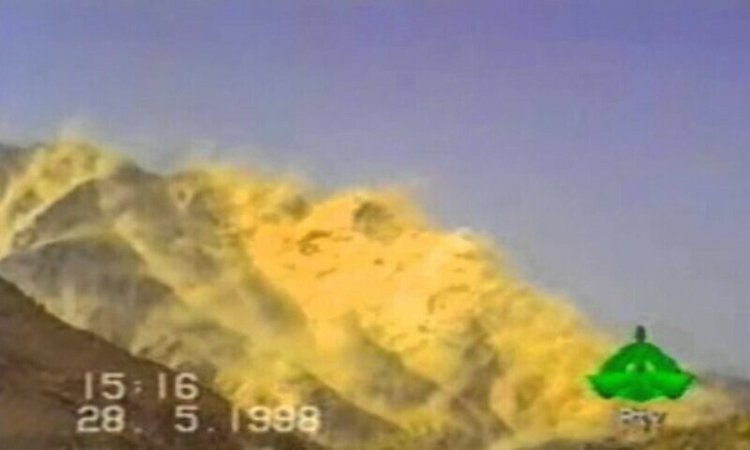 The nation fervently celebrated Youm-e-Takbeer Sunday, which marks the historic day when Pakistan conducted successful nuclear tests in the hills of Chaghai 25 years ago. With the tests, Pakistan became the seventh nuclear-armed country in the world and the first in the Islamic world, reinforcing its writ in the region and restoring the balance of power.
The nation fervently celebrated Youm-e-Takbeer Sunday, which marks the historic day when Pakistan conducted successful nuclear tests in the hills of Chaghai 25 years ago. With the tests, Pakistan became the seventh nuclear-armed country in the world and the first in the Islamic world, reinforcing its writ in the region and restoring the balance of power.
Youm-e-Takbeer is considered a red-letter day in Pakistan’s history which ensured invincible defence capabilities and regional stability through power equilibrium.
On the occassion, President Arif Alvi said that the acquisition of nuclear arms was “indeed a remarkable achievement” for Pakistan as it was inevitable to maintain the balance of power in the region.
Congratulating the nation for being a nuclear-armed country, he said that Pakistan conducted the nuclear tests in response to India’s declaration of possessing atomic warheads. “The nation pays tribute to its renowned engineers and scientists who made Pakistan a nuclear power in a short span,” Alvi added. In his message on the occasion, Prime Minister Shehbaz Sharif reaffirmed that the national defence and sovereignty were impregnable. He said that Youm-e-Takbeer was a clear declaration of “no compromise over country’s sovereignty, and defence”, and a reminder that the nation would not budge from any sacrifice to safeguard. He said that the national defence, dignity and freedom are above everything to the nation and no one has the courage to take them away. He urged the nation to move ahead with the same spirit as manifested on Youm-e-Takbir to attain economic sovereignty and self-dependence.
The prime minister paid tribute to the patriotism of the then prime minister, Nawaz Sharif – for conducting the nuclear tests despite all external pressures – and ex-premier Zulfiqar Ali Bhutto – who founded Pakistan’s nuclear programme. The premier also lauded the services of Pakistan and Dr Abdul Qadir Khan and all scientists, engineers and individuals who contributed to achieving nuclear deterrence. He also expressed his gratitude to Saudi Arabia and other brotherly countries that had helped Pakistan amid the economic sanctions imposed due to the atomic programme. Inter-Services Public Relations (ISPR) director general also highlighted the importance of the day, saying that the armed forces pay rich tribute to the “brilliant minds who conceived and achieved” nuclear deterrence despite challenges.
We salute the scientists and engineers who turned the impossible into a reality. Long Live Pakistan,” the military’s media wing stated.
Pakistan’s nuclear tests not only demonstrated the nation’s resolve to safeguard the country’s territorial integrity, independence and sovereignty but also the desire to preserve strategic balance in South Asia.
India tested its “device” for the first time in 1974 which compelled Pakistan to expedite its nuclear programme with renewed commitment. Amid slogans of “Allah-o-Akbar”, Pakistan conducted its first test on May 28, 1998, at the RasKoh hills in the Chaghai District of Balochistan.
Pakistan is committed to the promotion of an environment of peace and stability in South Asia while preserving its capability to ward off aggression or adventurism in any form. It is a partner in international efforts to strengthen the global non-proliferation regime based on the principles of non-discrimination and equal security for all states and adheres to the latest international standards on export controls and maintains the highest standards of nuclear safety and security.